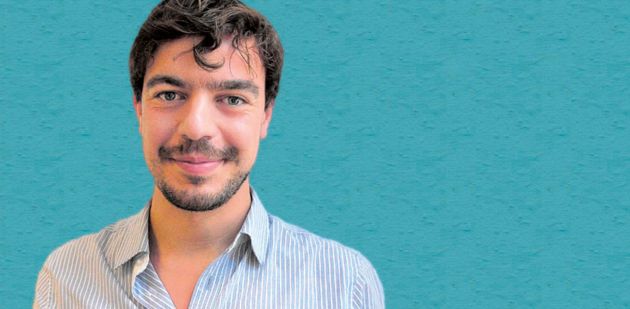Find out how a British scientist turned a smartphone into a system for performing complete eye exams. By Joao Medeiros, Science Editor for “Wired” UK.

Andrew Bastawrous started working as an eye surgeon in 2005. He went into medicine to work in poor environments, where he could have an impact. He trained in the UK, a period interspersed with frequent trips to countries in Africa and South America. “The biggest causes of blindness in those regions are cataracts, when the natural lens inside your eye becomes cloudy, and not having access to glasses, says Bastawrous. They are the same diseases that people in the developed world suffer, the only difference is that we can easily fix it.”
The story of Andrew Bastawrous and Peek is a tale of unorthodox innovation.
In 2007, Bastawrous did the first ever cohort study of eye disease in Africa on a population of 5000 throughout the Rift Valley in Kenya. Bastawrous went back later, to re-examine the same population, setting up 100 different clinics with expensive equipment in places with poor access and no electricity. “I thought there had to be a better way of doing this instead of carrying all this equipment and having all these expensively trained personnel. That’s when I had the idea of converting all of it into a smarthphone.”
Peek is a smartphone clip-on adapter and app that allows healthcare worker with minimal training, a bike and a solar-powered rucksack to do a quick eye exam. The exam is as accurate as the one using standard hospital equipment. “The phone is not going to treat anybody but will identify the people who need treatment”, says Bastawrous.
The story of Andrew Bastawrous and Peek is a tale of unorthodox innovation. Peek was first born in a context of necessity and frugality. When faced with the impossible task of using expensive equipment in a low-tech environment, Bastawrous simply asked: what if it’s possible to do the same with less? Now helped with Zooniverse, a project that uses crowdsourcing to analyse scientific images, he’s using inexpensive and effective scientific methods initially developed to analyse galaxies do the data analysis of eye disease and, potentially, save lives.
Perhaps more importantly, Bastawrous’ story is also a lesson about what it takes to innovate. When he had the idea for Peek, his colleagues tried to dissuade him. “People would tell me: ‘Sounds like a nice idea but you have too much work. Concentrate on your PhD’,” Bastawrous recalls. “But the idea kept on growing and I just thought, I’ll try to do it myself.”
João Medeiros heads the “science” section of the British edition of “Wired” magazine. He often covers stories relating to health and organises the annual “Wired Health” event.